mark warner
Latest
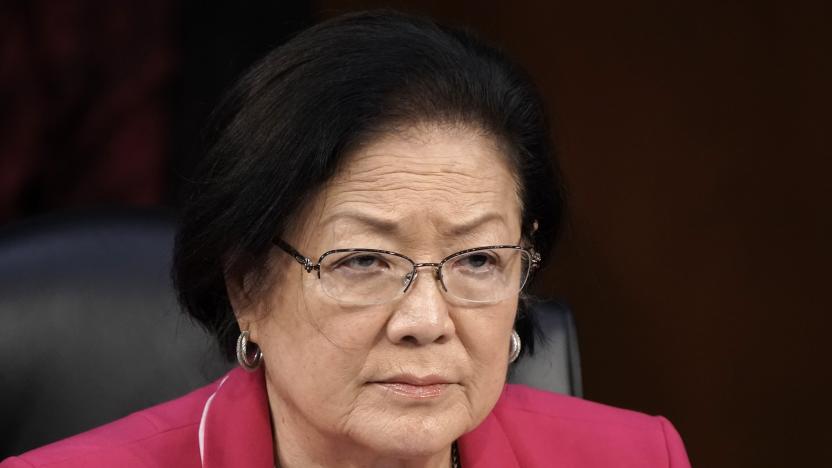
Senate Democrats introduce a bill to limit Section 230
The SAFE TECH Act would make platforms more liable for content that users post.
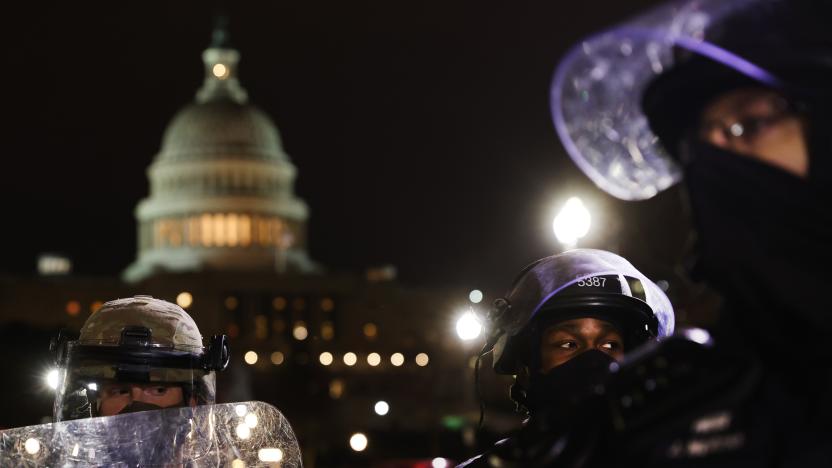
Senator asks social networks, carriers to preserve evidence from Capitol riot
Senator Mark Warner has sent letters to Facebook, Twitter, carriers and other companies asking them to preserve evidence from the US Capitol riot.
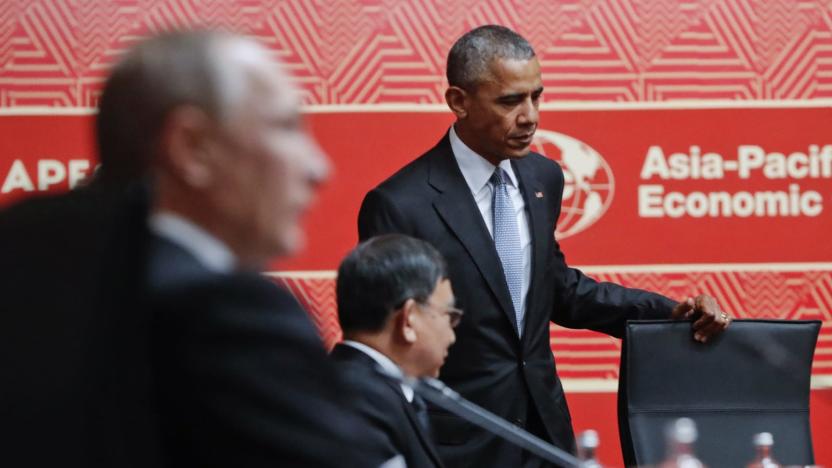
Senate: Obama Admin. wasn't prepared to handle Russian interference
Today, the Senate Select Committee on Intelligence released a report (PDF) detailing the Obama administration's response to Russia's meddling in the 2016 election. The report says the Obama administration was not well-prepared to handle the unprecedented election interference and that the administration suffered from "paralysis of analysis."
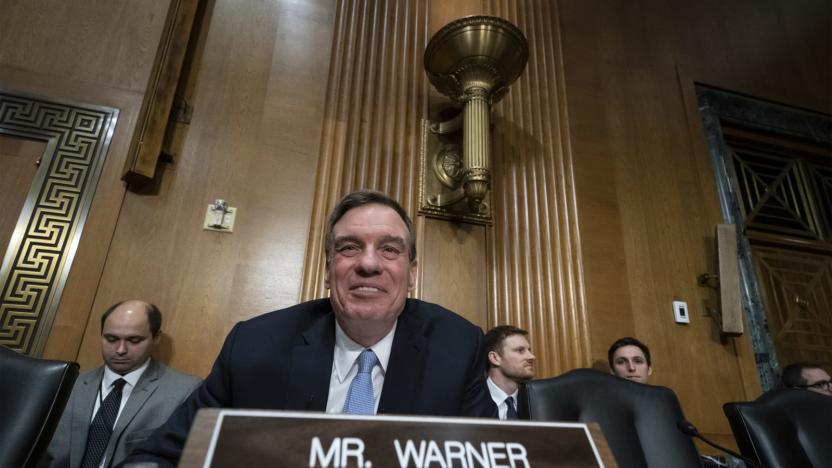
Senate bill aims to make user data 'portable' across social networks
Three senators think they have a way to address some of the antitrust concerns around social media companies. Today, Sens. Mark R. Warner (D-Virginia), Josh Hawley (R-Missouri) and Richard Blumenthal (D-Connecticut) will introduce a bill that would force social media companies to make user data "portable," so that it can be easily transferred to competing (read: smaller) services.

Intelligence Committee releases heavily redacted report on 2016 election hacking
Today the US Senate Select Committee on Intelligence released Vol. 1 of its report (PDF) on Russian attempts at election hacking in 2016. However, much of the information in it has already been released -- like knowledge that hacking attempts reached all 50 states in one form or another -- or is blacked out. As the New York Times notes, information redacted includes some of the key lessons for 2020.In public statements about the report, senators in both parties on the committee noted there is still work remaining to be done to ensure election security in 2020. Despite that, earlier today Senate Majority Leader Mitch McConnell blocked the consideration of election security bills. In response, Senator Ron Wyden said in a statement that "We shouldn't ask a county election IT employee to fight a war against the full capabilities and vast resources of Russia's cyber army. That approach failed in 2016 and it will fail again."Key Findings and Recommendations: The Russian government directed extensive activity against U.S. election infrastructure. The Committee found the activity directed at the state and local level began in at least 2014 and carried into at least 2017. The Committee has seen no evidence that any votes were changed or that any voting machines were manipulated. Russian efforts exploited the seams between federal authorities and capabilities, and protection for the states. The Department of Homeland Security (DHS) and Federal Bureau of Investigation (FBI) are, by design, limited in domestic cybersecurity authorities. State election officials, who have primacy in running elections, were not sufficiently warned or prepared to handle an attack from a hostile nation-state actor. DHS and FBI warnings to the states in the late summer and fall of 2016 did not provide enough information or go to the appropriate people. The Committee found that while the alerts were actionable, they provided no clear reason for states to take the threat more seriously than other warnings. DHS has redoubled its efforts to build trust with the states and deploy resources to assist in securing elections. Since 2016, DHS has made great strides in learning how election procedures vary across states and how to best assist those states. The Committee determined DHS's work to bolster states' cybersecurity has likely been effective but believes more needs to be done to coordinate efforts. Russian activities demand renewed attention to vulnerabilities in U.S. voting infrastructure. Cybersecurity for electoral infrastructure at the state and local level was sorely lacking in 2016. Despite increased focus over the last three years, some of these vulnerabilities, including aging voting equipment, remain. As states look to replace machines that are now out of date, they should purchase more secure voting machines. At a minimum, any machine purchased going forward should have a voter-verified paper trail. Congress should evaluate the results of the $380 million in state election security grants allocated in 2018. States should be able to use grant funds provided under the Help America Vote Act (HAVA) to improve cybersecurity in a variety of ways, including hiring additional IT staff, updating software, and contracting vendors to provide cybersecurity services. When those funds are spent, Congress should evaluate the results and consider an additional appropriation to address remaining insecure voting machines and systems. DHS and other federal government entities remain respectful of the limits of federal involvement in state election systems. America's decentralized election system can be a strength against cybersecurity threats. However, the federal government and states should each be aware of their own cybersecurity limitations and know both how and when to obtain assistance. States should remain firmly in the lead on running elections, and the federal government should ensure they receive the necessary resources and information. The United States must create effective deterrence. The United States should communicate to adversaries that it will view an attack on its election infrastructure as a hostile act and respond accordingly. The U.S. government should not limit its response to cyber activity; rather, it should create a menu of potential responses that will send a clear message and create significant costs for the perpetrator.
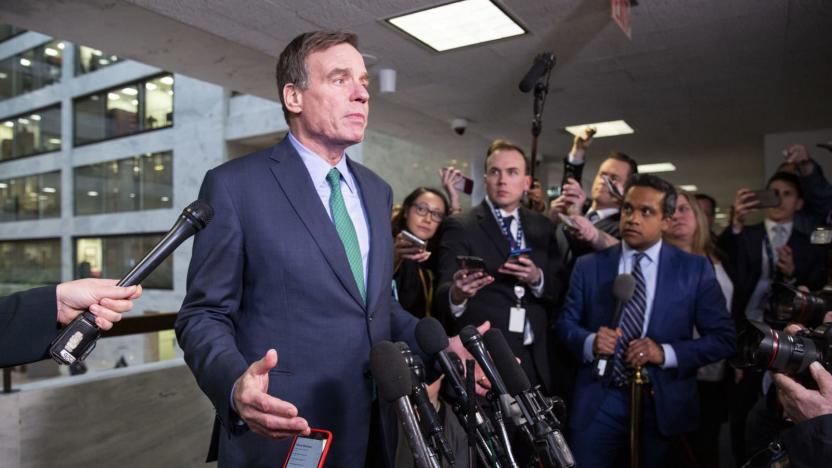
Senate bill would ban deceptive data collection by internet giants
If American legislators have their way, tech companies will have to face more than negative publicity if they collect your data in a less-than-sincere fashion. Senators Mark Warner and Deb Fischer have introduced a bill, the DETOUR Act (Deceptive Experiences To Online Users Reduction), that would bar internet firms with over 100 million monthly active users from tricking you into handing over personal data. Companies wouldn't be allowed to develop interfaces with the "substantial effect" of preventing you from making an informed decision. They also wouldn't be allowed to divide users into groups for experiments without consent, and couldn't develop compulsive experiences targeted at kids under 13 years old (such as auto-playing videos).

The Political Game: The Virtual Candidate
Each week Dennis McCauley contributes The Political Game, a column on the collision of politics and video games:Is it youthful and hip -- or just geeky and weird -- for a major political candidate to shake hands with a furry or kiss a baby avatar in the virtual world?We'll find out in 2008.When presidential hopeful Mark Warner visited Second Life last week, it represented a milestone for both online gaming and American politics.For the online game community, the former Virginia governor's Second Life stop was a definite boost. Most notably, it marked the first time anything but negative political attention -- violence! addiction! -- has ever been paid to an MMO. Moreover, Warner's visit was a tacit admission that there is something worth tapping into within the Second Life space -- that, despite the game's virtual landscape and offbeat avatars, SL is a real place, populated by gamers with genuine concerns, and, most importantly, gamers who vote.

Former governor speaks in Second Life [update 1]
Former Virginia Governor and potential 2008 presidential candidate Mark Warner became the first politician to make a public appearance in an MMO yesterday, speaking to a small crowd of avatars in Second Life on issues ranging from the Iraq war to abortion. Warner, who is also founder of cell phone company Nextel, literally flew onto the stage at the start of the event, leading interviewer Hamlet Au to comment that he is "not a noob."The lightly-attended event was put on by Warner's Forward Together PAC and Second Life promotional group Millions of Us as part of an effort to "go where the voters are," according to Forward Together staffer Nancy Mandelbrot. Warner didn't take audience questions during the event, but promised that he would be back for a virtual "town hall" meeting soon.With more and more voters spending more and more time in virtual worlds, is Warner on the leading edge of a new form of campaigning? Or is this appearance a gimmick that won't have any long-term effect on politics?[Update: Changed to reflect the fact that Warner is a former Virginia Governor, not current.]



